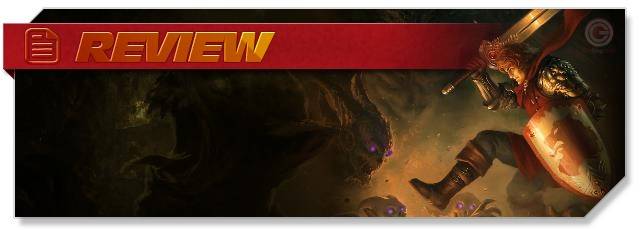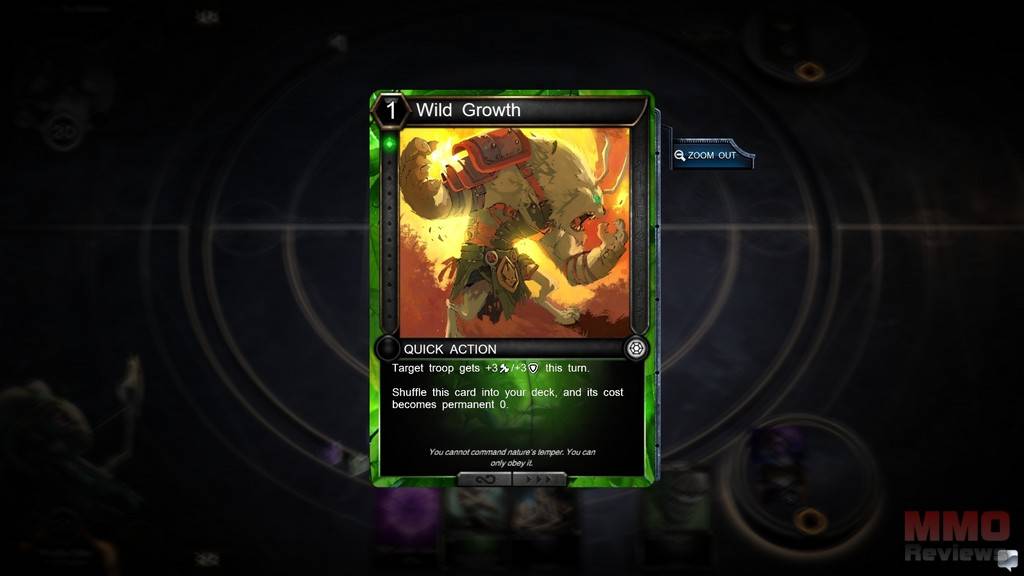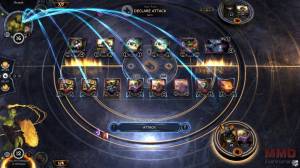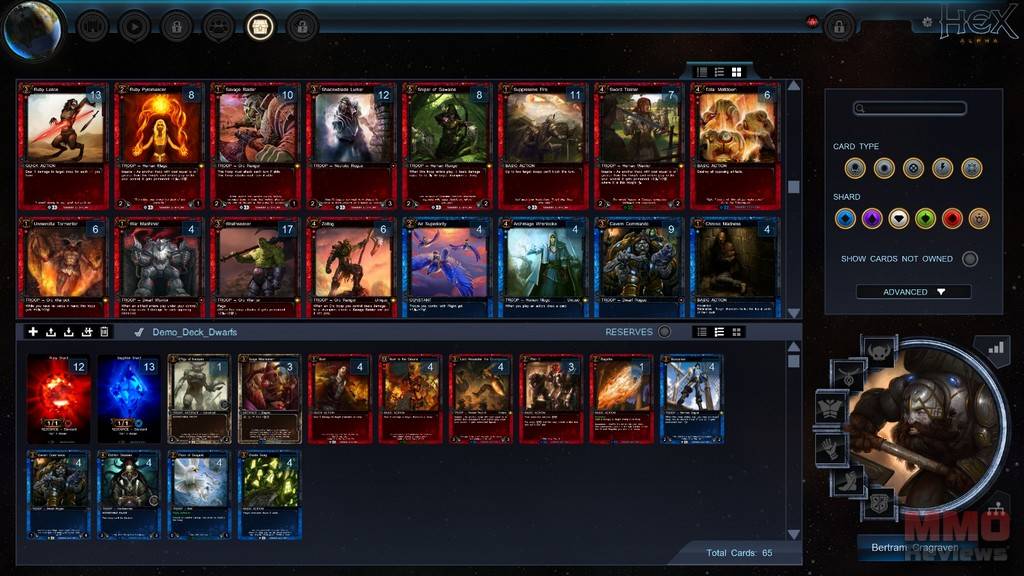RATING:
DBT
Pros: Promises a variety of different features as well as a more strategic and complex style of gameplay.
Cons: Its complexity might be its downfall for many players not willing to beat the learning curve.
We’ve lately been granted the opportunity to check out the early beta version of HEX: Shards of Fate, the latest trading card game from well-known TCG developers Cryptozoic Entertainment (publishing the game as Hex Entertainment) and the newest addition to an ever-growing list of trading card games. A while ago, we compared Hex and Hearthstone from Blizzard Entertainment contrasting the more complex mechanics of HEX with the casual nature of Hearthstone. After testing Hearthstone, we now have an in-depth look at the other side of the coin.
First of all, we definitely have to mention that HEX still is a very early closed beta stage; the game still noticeably lacks quite some features, e.g. sound effects (there is music though), while some AI were kind of dull. This arouses the common topic of the different expectations people have of a beta, as lots of developers nowadays use beta testing in order to fine-tune their game to ensure a release without any issue (which was the case with Hearthstone). HEX, however, still is far from being ready for launch, the most evident lack being that there are no in-game tutorials. Instead players get access to a quick downloadable PDF starter guide, which is actually needed.
Having played several TCGs before, we used our experience as a benchmark to compare HEX against. Although the majority of the game’s core elements are staples to the genre and our familiarity with them made it easy to play, it still offers a few unique gameplay features which weren’t too evident for us or, at least at this stage, intuitive.
Our confusion was primarily caused by the "chain" feature and the different phases a battle is divided into. When a player plays a card, essentially the following happens: they pass the turn to their opponent before the card actually goes into play, who then has the chance to counter attack it by adding their own card to "the chain" and passing the turn back; this phase continues until neither player has anything else extra to add to the chain. This allows players to debuff their opponent’s cards (among other things) the latter is about to put into play before they are actually put down on the table.
Our issue was that our starter deck didn’t contain any useful cards that allowed us to really experience this chain system. Therefore, the battles we participated in frequently seemed as if we were "ending phases" when nothing seemed to have happened at all, which caused a slight sense of confusion. Without any more comprehensive tutorial, some of the systems weren’t too evident at first glimpse, the card management system, for example, seemed a bit all over the place and we also had difficulties to figure out how to use our hero’s special attack/move.
HEX promises a few particularly interesting features we weren’t able to test at this stage for the most part. It would apparently take quite some levels to allow the game to really come into its own. Yet, we got a first impression of several things, e.g. in regards to hero gear. As traditional with TCGs, each player possesses a hero type character that the opponent will have to defeat by reducing its hit points. Hero cards feature multiple gear slots as common in MMORPGs, which players are able to equip items into.
We also had a card with a socketing option that presumably allowed attaching gear to (though obviously we didn’t have any gear at this stage). Each card moreover displayed a symbol for the double back feature that enables players to check the back of their card for additional options and information and then flip it again to the second back page that contains the card’s individual stats; the icon, however, is still greyed out for the time being.
In regards to graphics, the title looks great, offering beautiful card artwork and a few elaborate special effects throughout the battle. For the most part, the game already looks good, though there are apparently still some placeholder texts and images while card texts occasionally go a bit off and are not quite as polished as we would have expected at this stage.
In our original article of HEX vs Hearthstone, we actually were infinitely more excited about Hex, being concerned about the casual nature of Hearthstone. Having playtested Hex, we come to the conclusion that a casual and more accessible game doesn’t always necessarily mean a bad thing and can still be equally as fun as another a bit more complex one. However, we will save our final judgement for when Hex is finally accomplished and fully launched in order to find out whether casual can in fact triumph over complex.







Deja tu comentario
You must be logged in to post a comment.